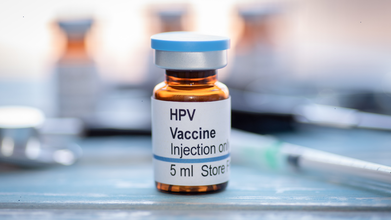- Health Conditions A-Z
- Health & Wellness
- Nutrition
- Fitness
- Health News
- Ayurveda
- Videos
- Medicine A-Z
- Parenting
Experiencing A Lack Of Sleep? This Medication May Be The Cause Of It

Cholesterol Medication and Sleep Issue (Credit-Canva)
As we get older, keeping cholesterol levels healthy becomes more of a challenge. Even if you eat well and exercise regularly, your cholesterol could be higher and could get more difficult to manage. While some of the faults lie with our metabolism, which is the process our bodies use to turn food into energy, it basically starts to slow down around our 40s which can be done by change your diet, but many people skip this leading to a higher cholesterol levels.
While some believe that slower metabolism only makes it easier for one to gain weight but it also affects how well our bodies clear cholesterol. This natural change means that monitoring cholesterol becomes even more important as we age, you can change your daily habits, and when you have any medical issue, doctors will prescribe you medicine.
‘Statins’ are a class of medications that reduce cholesterol levels in the blood and help protect the arteries given to patients to reduce the amount of cholesterol the liver makes, so that it is easier to clear out.
How Do Statins Affect Your Sleep?
Some studies have found a link between taking statins and experiencing sleep problems. A 2023 study published in the Journal of Health Inequalities show that certain statins, specifically ‘atorvastatin’ and ‘rosuvastatin’, might cause issues like insomnia, waking up frequently at night, having trouble falling asleep, or waking up too early. As conclusive as these kinds of studies are, you it is important to consult a healthcare professional who can give you an advice based on your body needs and medical history.
When considering medication side effects, it's important to understand the "nocebo" effect.
What is The Nocebo Effect?
This is when people experience negative side effects simply because they expect them to happen. While this isn’t too common, this can happen when patients start reading about potential side effects or hearing about them from others. The nocebo effect can make it difficult to determine if a symptom is truly caused by the medication or by the expectation of experiencing a side effect. This is especially relevant when discussing subjective experiences like sleep quality.
A 2015 analysis published in Archives of Medical Science combined data from five studies that used these objective sleep monitoring techniques. While a small reduction in nighttime awakenings was observed, the effect was minimal. This suggests that the impact of statins on sleep might be less significant than some self-reported studies indicate.
Managing Cholesterol and Statin Use
If you have high cholesterol, it's essential to talk to your doctor about the best way to manage it. There are many ways you can manage your cholesterol, including lifestyle changes like eating a healthier diet, exercising regularly, and maintaining a healthy weight. For some people, these changes may be enough to lower cholesterol levels. However, in other cases, medication like statins may be necessary. Sometimes, high cholesterol is caused by genetic factors, meaning diet and exercise alone won't be sufficient. Your doctor can help you determine the most appropriate course of action based on your individual risk factors.
Are There Any Side Effects to It?
These side-effects are often the reason why even healthcare professionals ask you to take these medicines as a last resort. Some of the more common side effects include muscle aches or pain, feeling dizzy, and experiencing digestive problems like an upset stomach. But another side effect that were reported by people was them experiencing sleeping issues. To understand this better it's important to study the research behind this connection.
Study Reveals The Worrying Reason You Should Protect Yourself From Scrub Typhus

Credit: Pixabay
In 2025, Andhra Pradesh reported 1,566 scrub typhus cases, and nine suspected deaths, according to data from the Integrated Health Information Platform, Integrated Disease Surveillance Programme (IDSP-IHIP) on 8 December. Followed by Karnataka with 1,870 cases, Tamil Nadu 7,308 cases, and Telangana, 309 cases. Scrub typhus cases have significantly increased from previous year. It is one of the deadliest infections affecting multiple organs, or even death. Early it was relevant to poeple working in fields, new studies show it migrating to human settlements.
What Is Scrub Typhus?
Scrub typhus, also known as bush typhus, is a bacterial infection caused by bacteria infection, caused by bacterium Orientia tsutsugamushi. It is spread through bites of infected larval mites, Chiggers.
Most cases of scrub typhus occur in rural areas of Southeast Asia, Indonesia, China, Japan, the Indian subcontinent and northern Australia. Until now, it was believed that chiggers only lurked in the tall grasses of remote paddy fields or dense forests. Due to this, it is commonly known as "farmers' disease", only confined to the fields.
However, new PLOS study data revealed the opposite. The study is led by researchers from Christian Medical College (CMC) Vellore and international collaborators and suggests that the bulk of infections are now even occurring within human settlements.
The study monitored over 32 000 people in Tamil Nadu, which led to the conclusion that agricultural activities, long considered the primary risk factor, were only weakly associated with the disease in high-prevalence areas.
How are Human Settlements A Prime Factor?
Risk for scrub typhus is significantly higher for those living in clustered houses or homes with fewer rooms. If the micro environment around the residence is unmaintained, gardens are patched, or even the damp corners of a courtyard, it could lead to breeding ground for the mites and the rodents that carry Chiggers.
Who Is At Most Risk?
It was once believed that working-age men were the most affected, but the new study tells otherwise. According to the new data, women over 60 are at the highest risk of infection.
As women spend most of their time in and around the home, due to household work, from the kitchen to the laundry, these activities are now the primary cross point of contact with infected mites.
What Is the Risk Factor Of Infection?
As initial symptoms of infection, such as fever, headache, and muscle pain, are the same as viral flu or dengue, many first seek help from untrained practitioners or local pharmacies.
By the time they reach the hospital, the disease has already progressed to severe complications like acute respiratory distress syndrome (ARDS), Kidney failure, or Meningoencephalitis, which is inflammation of your meninges and brain at the same time, a life-threatening condition.
Not only this, the researchers revealed that nearly 10 percent of affected households exceed 25 percent of their income in the treatment.
For severe cases, the cost of treatment can be up to approximately INR 110,000, a staggering sum for rural and peri-urban families earning a fraction of that monthly.
Prevention
- Do not let the grass grow tall around your house
- Tightly maintain kitchen gardens and remove piles of wood or debris where rodents (the primary hosts for mites) might nest.
- As chiggers are usually found close to the ground, do not sit directly on the grass or soil. Use chairs or mats. For children, make them wear socks and full- length trousers while playing in the yard.
- If you notice a small, dark, cigarette-burn-like mark, it is usually left behind by mites. It is most likely "Eschar". It is an important critical clue. As the bite is painless, it often goes unnoticed.
- Do a thorough skin check for an eschar, especially in warm, moist areas like the armpits, groin, or behind the knees.
Early intervention is necessary, as if a fever lasts more than two days, don't just treat it as "seasonal fever".
Consult a qualified doctor and specifically ask about scrub typhus. Infection can be treated with doxycycline common antibiotic, in the early stages. The case fatality rate in this study was 1.5 percent, hospital based studies in South India have previously recorded mortality rates as high 30 percent when treatment is delayed
Pregnant Woman Left Shocked After Third Nipple Appears in Armpit

Credit: @gynaegirls/Instagram
A now-viral video has revealed how a new mother who believed she had grown excessive fat tissue instead discovered that her body had developed a third nipple under her armpit.
Jasmine, an American woman had given birth five days earlier when a lactation consultant visited her to giver her advice on breastfeeding. The new mother, who was still exhausted and recovering from childbirth, recalled mentioning that her armpits always carried what she believed was excess fat that darkened during pregnancy.
"I breastfed my first baby for one-and-a-half-years, so I'm thinking that there's nothing this nurse can say that's going to surprise me," Jasmine said.
However, after a careful examination, the expert told her that the swelling in her underarm was extra breast tissue and that she also had "a nipple” there.
"When you're pregnant, your nipples and areolas will get really dark, and I have noticed the same change with my armpits, so I was like 'Great! extra breast tissue, I already knew that.' And then the lactation consultant is like 'Let me see,' and I show her, and she goes, 'Oh! yeah... And that's a nipple'.
"You know how cows and puppies and kittens, they have that line of nipples? Yeah, humans have that, too. Tell me why she's telling me about someone that had an extra nipple on her thigh. Telling me I have a third nipple in my armpit before I even had my first postpartum poop is diabolical work,” she said, joking about how little sleep she’d had.
What Do Experts Say?
A third nipple, or a supernumerary nipple, is a fairly common condition in which you have an extra nipple. While researchers are yet o discover why they develop, they note that third nipples form during embryonic development. Some common variations include:- Polythelia: The third nipple is present by itself with no areola (the area of darker skin around your nipple) or underlying breast tissue. This is the most common type of supernumerary nipple.
- Polythelia areolaris: The have an areola present, but no nipple or breast tissue.
- Polythelia pilosa: The have a patch of hair only.
- Polymastia: The third nipple has an areola and has some underlying breast tissue.
- Supernumerary nipple: There is a third nipple that has breast tissue underneath it, but it doesn’t have an areola.
- Supernumerary nipple: There is some breast tissue and an areola, but no nipple is present.
- Aberrant glandular tissue: You have breast tissue, but no nipple or areola is present.
- Pseudomamma: Your third nipple has an areola around it, but instead of breast tissue, you have fatty tissue beneath
According to Dr Rooma Sinha, an obstetrician and gynaecologist at Apollo Hospitals in Hyderabad, Jasmine's third nipple is known as the axillary tail of the breast, a normal extension of breast glandular tissue that tapers into the underarm.
“Some women have axillary tail of the breast. This is probably that. It may produce milk if it has active mammary glands," she told Moneycontrol .
She also confirmed that humans can have supernumerary nipples along what is known as the “embryonic milk line,” extending from the armpit toward the chest. However, this line does not extend down to the thigh, as Jasmine recalled in her video.
According to experts, the axillary tail can feel like a lump or thickened area, particularly during hormonal changes such as pregnancy, breastfeeding or menstruation and may become tender or enlarged.
What Happened Next?
In a follow-up video, Jasmine showed her fans her “underarm boob", on popular demand and clarified that she never attempted to pump milk from the additional nipple because she did not want to stimulate the tissue.“Regular breast production is sufficient for me,” she said, noting that the extra tissue was painful and that she might consider surgically removing the tissue after she decides not to have more children.
HPV Vaccine Can Protect Against Cervical Cancer for Up to 18 Years: Study

Credit: Canva
Even as India is working to roll out a free Human papillomavirus (HPV) vaccination campaign to curb cervical cancer risk, a new global study today revealed that the shot offers sustained protection for up to 18 years.
HPV is one of the most common sexually transmitted infections, and many countries offer vaccination to protect girls against cervical cancer and other related cancers in later life.
The study from Sweden, published by The BMJ, based on 926,362 girls and women between 2006 and 2023, showed that girls vaccinated before age 17 had a substantially (79 percent) lower risk of cervical cancer.
"This study provides evidence of sustained protection against invasive cervical cancer throughout 18 years of follow-up, with no indication of waning protection," said corresponding author Shiqiang Wu, doctoral student at the Department of Medical Epidemiology and Biostatistics, Karolinska Institutet.
"These findings further support global strategies for eliminating cervical cancer as a public health problem by achieving high coverage of routine HPV vaccination," Wu added.
Early HPV Vaccination Boosts Protection
In the study, 40 percent of participants had received at least one dose of the quadrivalent HPV vaccine.
Of 930 cases identified of invasive cervical cancer, 97 were in vaccinated individuals, while 833 were among the unvaccinated.
Vaccination before age 17 offered higher protection -- 79 percent -- against cervical cancer compared with the unvaccinated group. The protection was sustained with 77 percent lower risk for over 15 years after vaccination, the researchers said.
On the other hand, women vaccinated at age 17 or older had a 37 percent lower risk of invasive cervical cancer compared with the unvaccinated group. Vaccination at an older age led to a 46 percent lower risk of cervical cancer -- about 10–12 years.
The results also show a population-level decline in cervical cancer cases over time.
India's Nationwide Free HPV Vaccine Campaign
Cervical cancer remains the second most common cancer among women in India, with nearly 80,000 new cases and over 42,000 deaths reported annually.
The new nationwide HPV vaccination program will strengthen women's health and eliminate the risks of preventable cervical cancers in the country.
Vaccination under the national program will be voluntary and free of cost.
HPV Vaccine In India: Who Should Take, Where To Get It From
The nationwide program, based on expert recommendations of the National Technical Advisory Group on Immunization (NTAGI), will target girls aged 14 years.
At 14, the HPV vaccine offers maximum preventive benefit, well before potential exposure to the virus.
- Girls aged 9 to 14 should get two doses of the vaccine 6 to 12 months apart
- Women aged 15 to 26 years can get three doses in 0, 2, and 6 months apart
- Adults aged 27 to 45 must get it after consultation with their healthcare provider
The HPV vaccination will be conducted exclusively at designated government health facilities, including Ayushman Arogya Mandirs (Primary Health Centers), Community Health Centers, Sub-District and District Hospitals, and Government Medical Colleges.
© 2024 Bennett, Coleman & Company Limited

